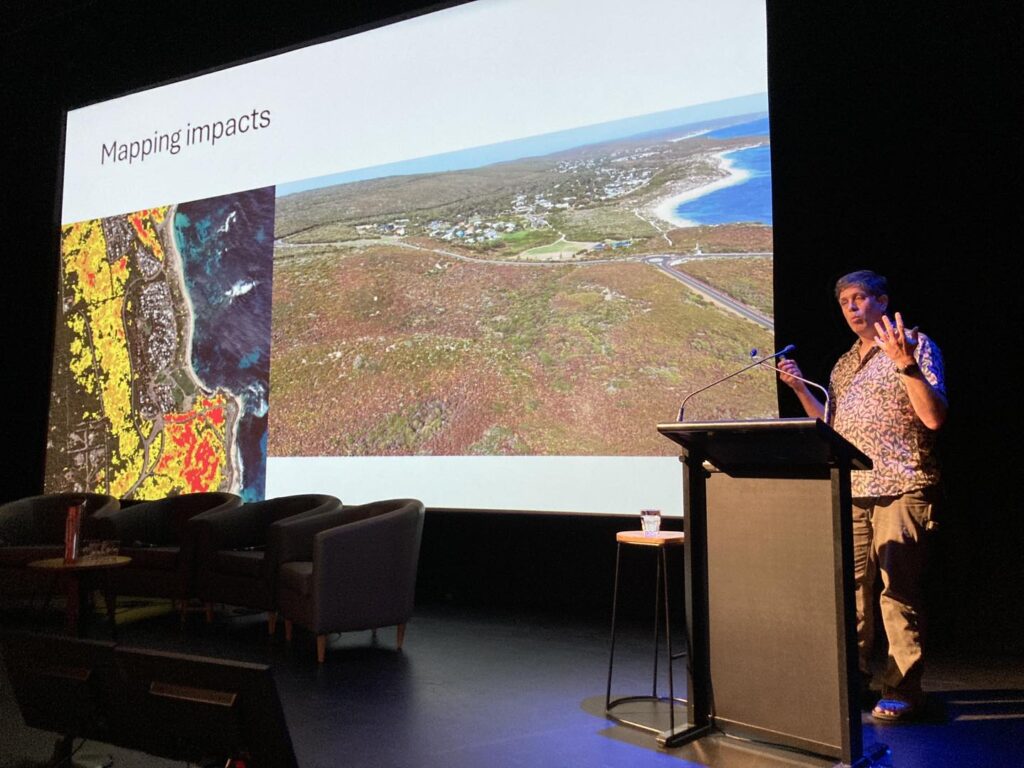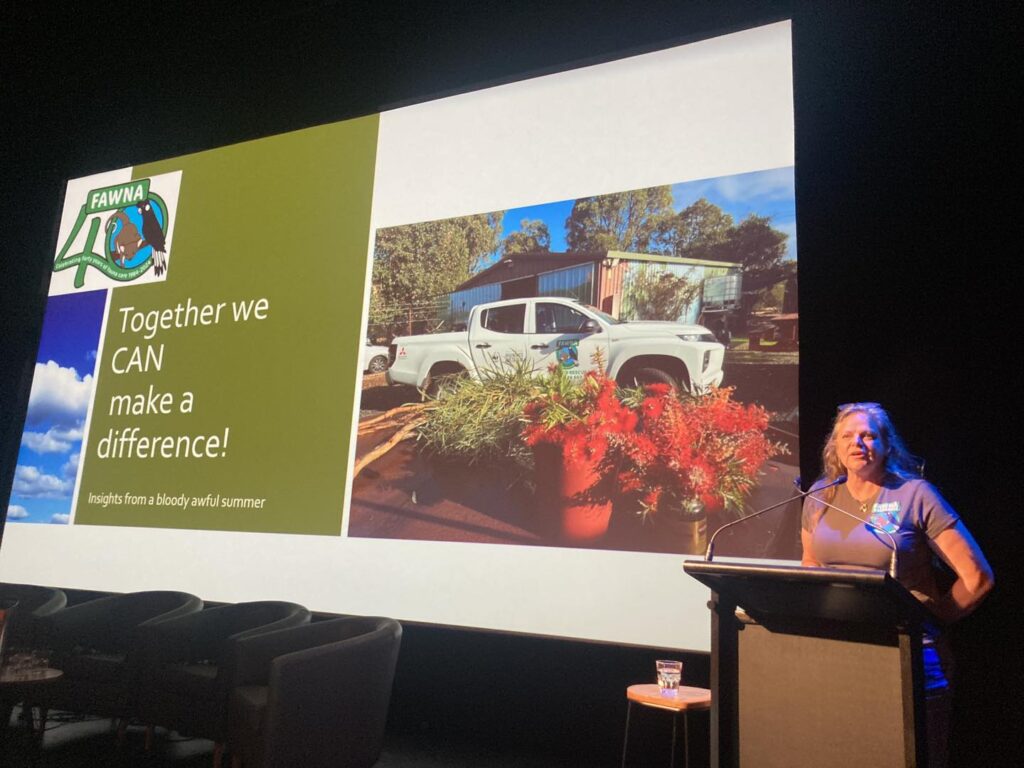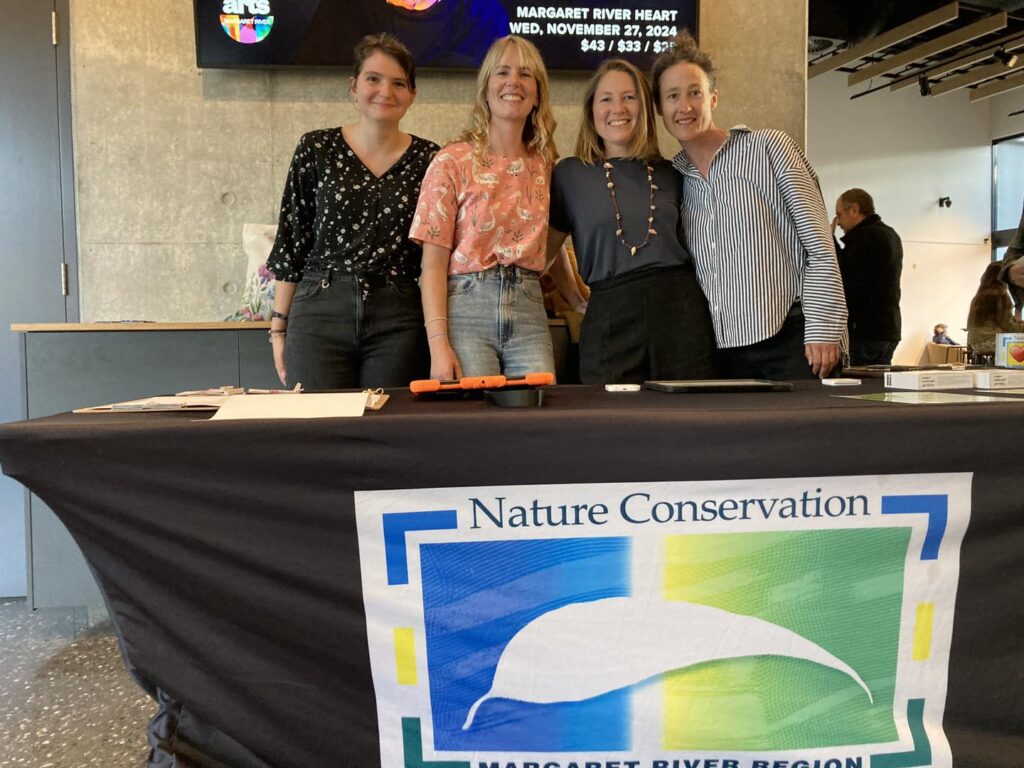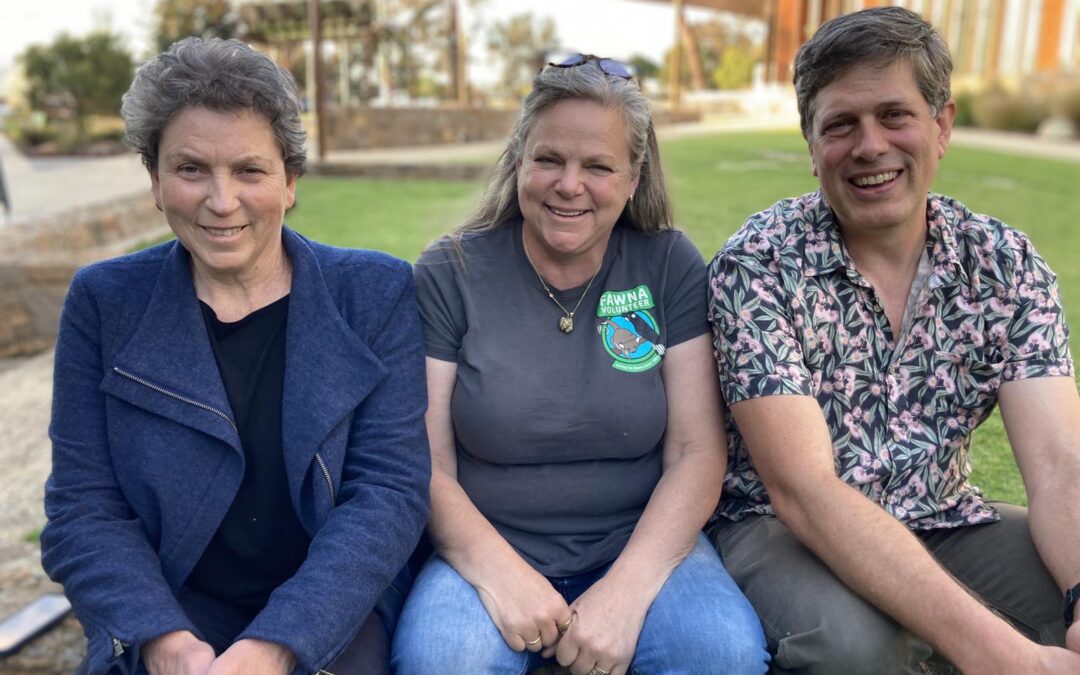Our region’s flora and fauna are facing major challenges as our climate dries and rainfall hits record lows – but there are ways each of us can make a difference.
That was the message a packed audience heard at Nature Conservation Margaret River Region’s latest Environmental Sundowner Series event, held at the Margaret River HEART on Tuesday, October 1.
The evening – with three expert speakers followed by an audience Q&A – was the ninth in the conservation group’s Sundowner Series and the second of a two-part special called Facing the Big Dry. Part one looked at water, streams and rivers in our drying climate, while Tuesday’s sequel built on the theme and took an in-depth look at the effects of our drying climate on flora and fauna.
While winter rains are falling now, Nature Conservation general manager Drew McKenzie said during summer and autumn the region endured its driest and hottest 7-month period on record, with swathes of vegetation dying off and a heavy toll on wildlife.
Speakers included Murdoch University researcher and forestry sciences expert Dr Joe Fontaine, who specialises in disturbance ecology and how fire or drought affect an ecosystem’s ability to recover. “These extreme events are happening more often and that has consequences for how the ecosystems we know and love are going to be changing,” he said.

Dr Fontaine said vegetation had died off in areas with shallow granite soils as well as in coastal areas, potentially opening the door for weed species to move in. While dead or dying vegetation might seem like a fire risk, he said that the total fuel load has not increased – leaf matter has just moved from the canopy to the ground and some of this would be starting to decay. He also noted that many plants were showing signs of resprouting and that even completely dead plants still represented important habitat.
Also speaking on the night was ANSTO scientist Dr Pauline Treble, an isotope paleoclimatologist who is leading research on the impacts of climate change on groundwater recharge and has been monitoring local caves for more than 20 years. She said stalagmites were like “time machines” allowing researchers to extract climate information dating back tens of thousands of years. Her research found groundwater replenishment from rainfall in the Margaret River region is now at its “lowest level in the last 800 years”.
Meanwhile, Suzi Strapp – president of animal care group FAWNA – painted a confronting picture of working on the front line with wildlife impacted by the big dry during what she called a “bloody awful summer”.

She said during the big dry many adult swans abandoned their young, with FAWNA volunteers rescuing almost 200 cygnets in our region. She said Western ringtail possums seeking shelter under solar panels were treated for burnt paws from hot tin roofs, with 73 possums treated last summer compared to 23 the season before. But Ms Strapp said people can help by providing clean water for wildlife, planting wildlife and waterwise gardens, keeping cats and dogs in at night, building a ‘catio’ for cats, removing introduced weeds, sharing nature-positive social media, making a monthly donation to local conservation, and volunteering.
Award-winning documentary filmmaker Jane Hammond, whose current project titled Browned Off tells the story of the mass vegetation die-off across the South-West, joined the three speakers for the audience Q&A. She said we’re seeing the forests collapse “in our own backyard”.
“Our government is still pushing gas and pushing fossil fuels, and we’re watching the forests collapse and we have to connect the dots,” she said. “We can do something but we need to act now and we need to tell out politicians, enough fossil fuels, it’s time to act on climate change and it’s time to do something.”

Mr McKenzie said it was heartening to see so many local people turn out to hear from the three experts in their field as they discussed the importance of our forests and wildlife, and the serious threats they face from climate change and a drying climate. He also urged locals to download Nature Conservation’s Fieldbook weed mapping app to report invasive species and help protect remnant vegetation and the wildlife that relies on it for habitat. “Significant areas of vegetation have been highly stressed and it’s important that we give them the best chance to recover by minimising disturbance,” he said.
This event in our Sundowner Series was possible thanks to funding from the Shire of Augusta-Margaret River and sponsorship from the Margaret River Wine Association.

